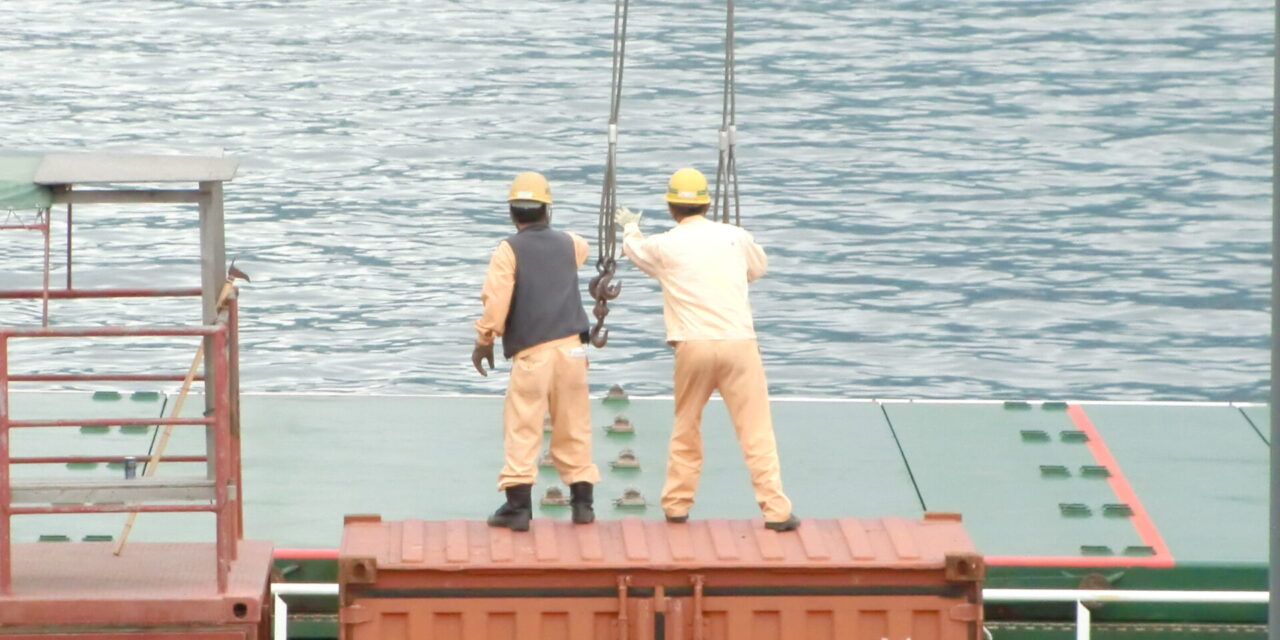Last month, Japan publicly released the draft of the Guidelines on Respect for Human Rights in Responsible Supply Chains.[ii] This is the product of a long process undertaken by the Japanese Government to set human rights due diligence (HRDD) guidelines for companies in a bid to follow the footsteps of the United States and European Union amidst recent global trends on HRDD, including the passage of national laws imposing obligations on companies to conduct HRDD in their supply chains. This development is being hailed as a significant step forward, since it is considered as the first HRDD national legislation in Asia as monitored by the World Benchmarking Alliance and the Business and Human Rights Resource Centre.[iii]
Notwithstanding, a critical question is raised: How would these Guidelines be translated into appropriate laws and regulations and effectively implemented?
The road to due diligence
In 2011, the Guiding Principles on Business and Human Rights (UNGPs) were endorsed by the UN Human Rights Council (UNHRC). The Second Pillar of the UNGPs or the Ruggie Principles—named after the late UN Secretary-General’s Special Representative for Business and Human Rights John Ruggie—is the Corporate Responsibility to Respect Human Rights that focuses on establishing guidelines for conduct that all business enterprises should follow throughout their operations. “In Ruggie’s words, the due diligence process was chosen because it was known to corporations, and as such it was not going to be alien to them,” as noted by the Global Campaign to Dismantle Corporate Power and Stop Impunity in its position paper.[iv]
Three years after, in 2014, the UNHRC adopted a resolution on the elaboration of an international legally binding instrument (LBI) on transnational corporations (TNCs) and other business enterprises with respect to human rights. Japan and 13 others voted against this resolution[v]; instead, their position until now has been to support the implementation of the UNGP and the National Action Plan (NAP) on Business and Human Rights (BHR).
Consequently, in October 2020, the Japanese Government launched a NAP on BHR based on the UNGPs. Thereafter, the Ministry of Economy, Trade, and Industry (METI) and Ministry of Foreign Affairs (MOFA) published in 2021 the results of a Questionnaire Survey on the Status of Efforts on Human Rights in the Supply Chains of Japanese Companies.[vi] The survey found out that out of 760 companies, 69% have formulated a human rights policy, 52% are conducting HRDD, and 21% have not done anything to manage human rights abuses in their supply chains due to lack of expertise and the absence of guidelines set by the government.
In August 2022, the METI released the first government-led draft guidelines on HRDD in the supply chains for public comments. Just weeks after, on September 13, the Japanese Government published the Guidelines despite issues raised by civil society organizations on the conduct of the consultations and the quality and credibility of the adopted version.[vii]
Critical issues abound
Impetus for enacting such national legislation in Japan rose following a recent case involving seizure of shirts made by Japanese apparel maker Fast Retailing Co. (fashion brand Uniqlo’s parent company) by the US Customs and Border Protection. In December 2021, the Uyghur Forced Labour Prevention Act along with its stringent import restrictions was signed into law by US President Joe Biden. Facing allegations of forced labour in the Xinjiang Uyghur Autonomous Region where the cotton for the production of its men’s shirts was reportedly sourced from, Uniqlo appealed its case with the US agency, and lost—and along with it, potential revenue.
At first glance, these types of national legislation can be viewed as advancing corporate accountability as they can clarify what is expected from corporations across their supply chains. However, since they are only national in scope, they may be applied only to the operations of companies within the particular country. In addition, compliance to the Guidelines has been more about reducing management risks, improving brand image, and increasing corporate value, which are all seen as good for business, rather than as part of stronger regulations. Thus, the stated primary motivation is more for financial and strategic considerations—for firms to retain their competitiveness, ability to trade, and market access—rather than ensuring the primacy of human rights, environmental protection, and corporate accountability.
Granted, this initial step in clarifying obligations can potentially lead to an end result with actual and verifiable human rights due diligence processes in place, which is a more favourable operating regime than states feigning commitments to human rights but not putting in place regulatory obligations.
It is evident that Japan’s Guidelines only adhere to the core elements of the UNGPs; its framing being more in line with UNGPs where the primary responsibility to protect lies with states, while businesses have only a responsibility to respect. As such, the Guidelines merely take off from purely voluntary commitments as opposed to legally binding and stronger obligations, essentially veering away from stronger language on direct obligations by corporations.
To be clear, while corporations certainly must have legally binding obligations, it is still the states that must lay down the regulatory and legal framework, set the legal obligations, and ensure that they are met. Corporations must not be allowed to take over the role of the states as flagrantly displayed in various multi-stakeholder initiatives (MSIs).
Ironically, such HRDD policies are also being used to argue against the Legally Binding Instrument (LBI) in that they supposedly can take the place of stronger and binding regulations, and that voluntary initiatives and national legislation (wherever they are in force) are both sufficient to regulate corporate behaviour (wherever they operate). However, the Guidelines themselves recognize the limits of HRDD policies and admit: “Due to its nature, human rights due diligence does not guarantee the result that there are no human rights abuses.”
The Guidelines state that it is more of a preventive mechanism, an ongoing process to prevent and mitigate adverse human rights impacts while “holding dialogue with stakeholders”. The prevention and immediate stop to human rights abuses in any instance is a welcome proviso of the Guidelines. However, the Guidelines do not set forth with clarity what “mitigation” involves and how human rights abuses are supposed to be mitigated. And while holding dialogue with stakeholders is an important part of the process, the Japanese Government will need to address the limitations of such dialogues with the power asymmetries commonly attendant to them.
Consistent with the position of Japan and other countries opposed to the LBI, there is no mention of transnational corporations in the Guidelines, preferring instead the generic “all business enterprises engaging in business in Japan regardless of the company size, sector, etc.” However, the Global Campaign to Dismantle Corporate Power and Stop Impunity[viii] argues that TNCs should be the primary targets, because they are able to elude obligations or responsibilities, precisely because of their size and power.
Skirting and shirking accountability
The key issue on due diligence is the question of liability of the parent or subsidiary companies and their relationship with their suppliers or subcontractors across their supply chains. The Guidelines state that only in cases where a business enterprise “has recognized that it caused or contributed to adverse human rights impacts” that it “should implement a remedy or cooperate in the implementation of a remedy.” However, if adverse human rights impacts are “only directly linked to its own operations, products or services, the business enterprise is not made responsible for implementing a remedy.” Thus, it is not made responsible for the conduct of its suppliers and its global supply chains even if their operations lead to human rights violations.
As such, there is no explicit obligation to implement a remedy but instead, companies are just expected to “make efforts” to prevent or mitigate the adverse impacts. The Guidelines talk about adverse human rights impacts, while in the LBI negotiations, the discussions are already in terms of human rights abuses committed by corporations. This means that rather than having a stronger mechanism of holding companies to account legally when their operations lead to human rights violations, the Guidelines leave it up to the business enterprises to determine and own up to any adverse impacts of their operations or those of their partners in the supply chains.
This then raises even more critical issues when considered in a context wherein most companies have pushed for the lowest of the low, the bare minimum denominator on human rights. For one, who would make the determination on whether adverse impacts result from the business operations, including the mechanisms to be used in assessing such impacts? Can business enterprises be trusted to do an independent, careful, and unbiased determination?
In most cases, business enterprises are not held to account should their operations, and in some instances, continued operations of the business under different arrangements, further contribute to existing systemic issues or exacerbate them.
One need not go back far to remember how the Japanese corporation Sumitomo was able to wash its hands of its responsibility by selling its stake in a joint venture in 2019 amidst labour rights violations arising from the banana plantation operations of its affiliate Sumifru Philippines Corporation.[ix] This was also seen in the recent share buyback of Japanese beverage maker Kirin Holdings with their joint ventures Myanmar Brewery and Mandalay Brewery following the military coup in Burma in 2021. The group Justice for Myanmar denounced this move as the company’s “complicity in the military’s international crimes” by choosing to “prioritise their bottom line over their human rights responsibilities and the lives of the people of Myanmar.”[x]
Across the world, the limits of HRDD and the UNGPs are further exposed by experiences of affected communities. In her opinion piece on the recent interdict granted by the Makhanda High Court in South Africa against Shell, public policy analyst Sikho Luthango eloquently opines: “This is mainly because as a requirement, human rights due diligence is rooted in transnational social norms and not in international legal norms — “supra-legal norms” co-existing with other legal norms. This is especially problematic in weak governance zones especially in the Global South where institutions tend to favour politicians, traditional leaders, military officials and cronies.”[xi]
A small step but a gap still to fill
More and more questions are then raised on how much we can really expect from a nationally legislated HRDD: Absent a legally binding instrument as well as binding international and national human rights due diligence laws that will hold them accountable, can corporations and businesses be truly expected to uphold their responsibility to respect human rights if their raison d’être is to maximize profits at all costs? Can internal business policies on human rights and internal assessment processes, including “dialogues with stakeholders” and corporate-led “tracking methods” legitimately hold corporations to account for their human rights violations and corporate crimes?
Overall, can these national policies on HRDD truly improve access to justice and reparation for victims, significantly increase the liability of companies, and effectively regulate corporations to protect human rights and the environment? Or, as in the many experiences of affected communities, would they just be reduced to meaningless (and insidious) box-ticking exercises?
In sum, the Guidelines on Human Rights and Due Diligence could help in the initiatives to universalize measures to protect human rights by clarifying obligations. However, more must be done, particularly in moving towards more mandatory due diligence mechanisms. In fact, unless clearly articulated at the outset that it is just the initial step in working towards a Legally Binding Instrument across countries, it could even undermine efforts to establish specific legal obligations and stronger enforcement mechanisms for corporations across their supply chains. Ultimately, movements, civil society organizations, and communities must continue to work hand-in-hand in the struggle to dismantle corporate power and end impunity.
[i] Galileo is a Programme Officer at Focus on the Global South. He would like to thank Joseph Purugganan of the Asia Task Force (ATF) on the Legally Binding Instrument for his guidance in the writing of this article.
[ii] Ministry of Economy, Trade, and Industry. (2022 August 8). Guidelines on Respect for Human Rights in Responsible Supply Chains. Tokyo, Japan. Retrieved from: https://www.meti.go.jp/shingikai/economy/supply_chain/pdf/20220808_2.pdf
[iii] World Benchmarking Alliance & Business and Human Rights Resource Centre. (2022 May 18). Recommendations for the Japanese government’s proposed guidelines on human rights due diligence. Retrieved from: https://www.worldbenchmarkingalliance.org/news/recommendations-for-the-japanese-governments-proposed-guidelines-on-human-rights-due-diligence/
[iv] Global Campaign to Dismantle Corporate Power and Stop Impunity. (2022 March 16). Position Paper of the Global Campaign on Due Diligence in Human Rights. Retrieved from: https://focusweb.org/position-paper-of-the-global-campaign-on-due-diligence-in-human-rights/
[v] The following member states voted against UNHRC Resolution 26/9 in 2014: Austria, Czech Republic, Estonia, France, Germany, Ireland, Italy, Japan, Montenegro, South Korea, Romania, Macedonia, the United Kingdom, and the United States of America.
[vi] Ministry of Economy, Trade, and Industry. (2021 November 30). Release on the Results from the Questionnaire Survey on the Status of Efforts on Human Rights in the Supply Chains of Japanese Companies. Tokyo, Japan. Retrieved from: https://www.meti.go.jp/english/press/2021/1130_002.html
[vii] Business and Human Rights Resource Centre, et al. (2022 September 21). Japan: CSOs call for transparent and meaningful stakeholder engagement for Guidelines on Respect for Human Rights in Responsible Supply Chains. England, United Kingdom. Retrieved from: https://www.business-humanrights.org/en/latest-news/japan-csos-call-for-transparent-and-meaningful-stakeholder-engagement-for-guidelines-on-respect-for-human-rights-in-responsible-supply-chains/
[viii] Global Campaign is a network of over 250 social movements, civil society organisations (CSOs), trade unions and communities affected by the activities of Transnational Corporations (TNCs). These groups resist land grabs, extractive mining, exploitative wages and environmental destruction caused by TNCs globally but particularly in Africa, Asia, Europe and Latin America.
[ix] Banana Link. (2019 July 8). Sumitomo sells its stake in Sumifru Philippines amid allegations of labour rights abuses. England, United Kingdom. Retrieved from: https://www.bananalink.org.uk/news/sumitomo-sells-its-stake-in-sumifru-philippines-amid-allegations-of-labour-rights-abuses/
[x] Justice for Myanmar. (2022 June 30). Kirin Holdings’ irresponsible exit will continue its complicity in Myanmar military’s atrocity crimes. Retrieved from: https://www.justiceformyanmar.org/press-releases/kirin-holdings-irresponsible-exit-will-continue-its-complicity-in-myanmar-militarys-atrocity-crimes
[xi] Luthango, Sikho. (2022 June 14). OPINION| Due diligence needs to be more than a box-ticking exercise. Mail & Guardian. Johannesburg, South Africa. Retrieved from: https://mg.co.za/opinion/2022-06-14-opinion-due-diligence-needs-to-be-more-than-a-box-ticking-exercise/









